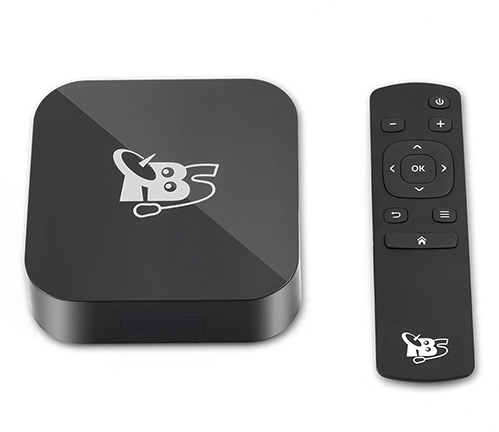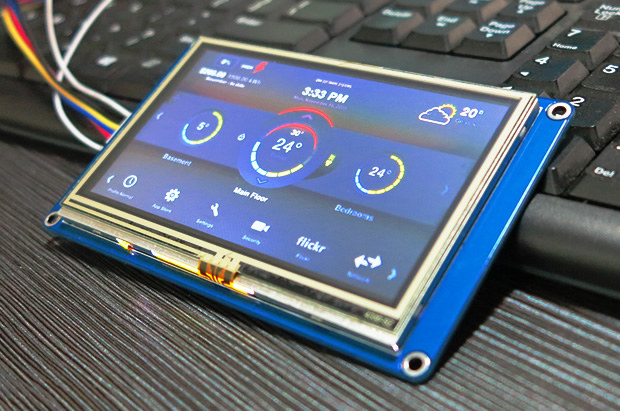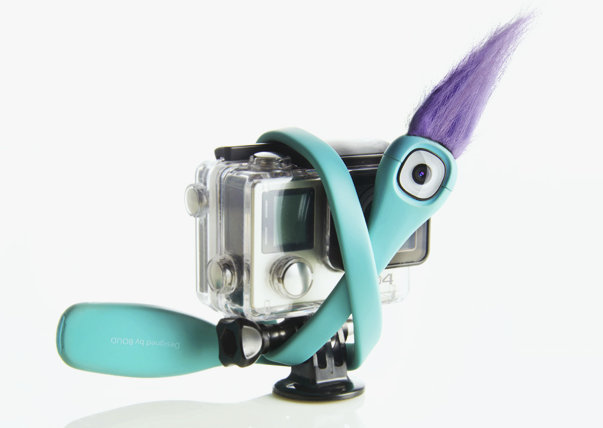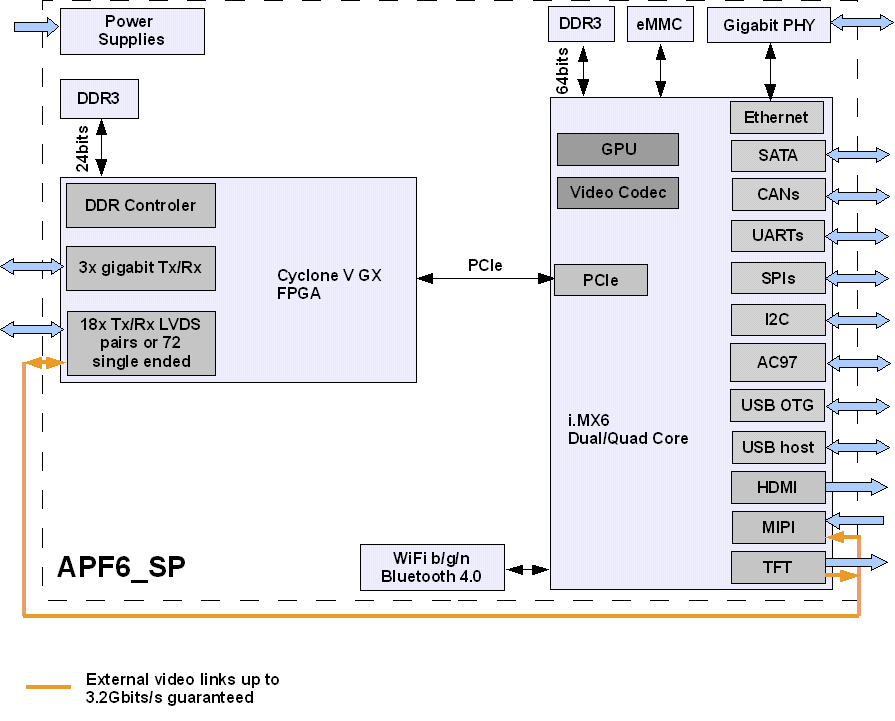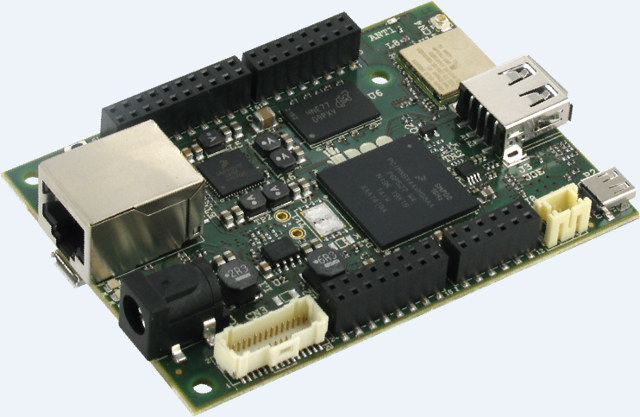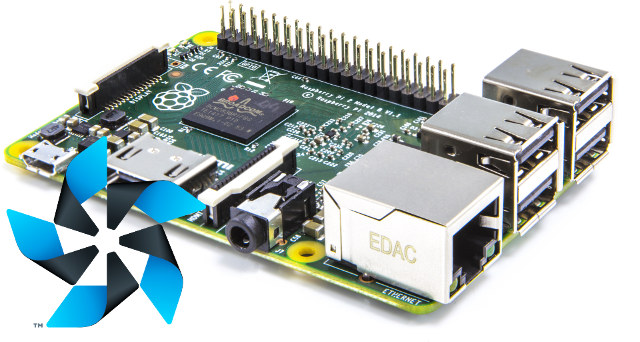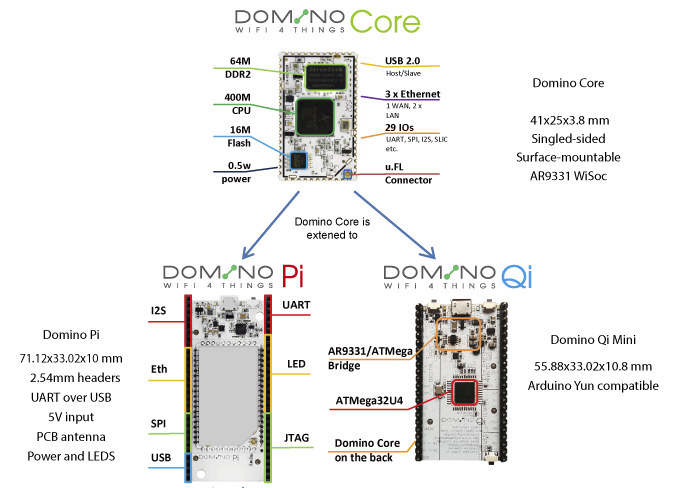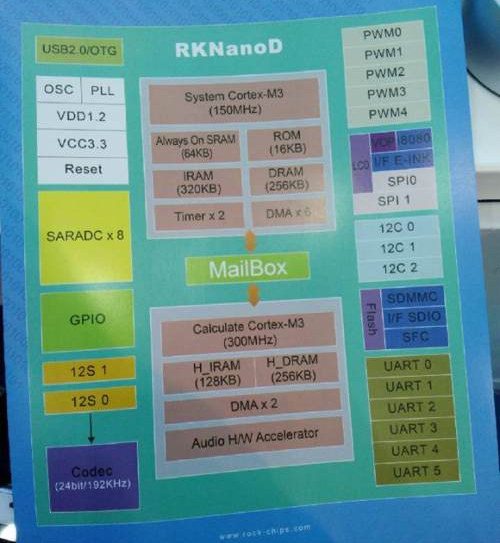TBS launched their Matrix 2910 media player based on Freescale i.MX6 Quad processor in 2013, and what made the platform especially interesting was support for the company’s USB DVB tuners in their Android and Ubuntu images. The company has now unveiled its successor with TBS 2980 Matrix 2 powered by Allwinner A80 octa core processor that will also support USB DVB-T2, DVB-C & DVB-S2 tuners. TBS Matrix 2 specifications: SoC – AllWinner A80 4x Cortex 15, 4x Cortex A7 big.LITTLE processor with PowerVR GC6230 GPU System Memory – 2GB DDR3 Storage – 8GB eMMC + micro SD card slot Video Output – HDMI + AV port Audio – HDMI, AV, and optical S/PDIF Connectivity – Gigabit Ethernet, dual band Wi-Fi 802.11 a/b/g/n, Bluetooth 4.0 USB – 1x USB 3.0 port, 2x USB 2.0 host ports Misc – IR receiver, reset button Power Supply – 5V/3A Dimensions – 101 x 101 […]
Nextion 2.4″ and 4.3″ UART TFT Displays Come with a Drag and Drop UI Editor (Crowdfunding)
You may want or need to add a small TFT display to control your devices, and it may not always be easy to interface with the hardware, and desiging the user interface may be time consuming. ITEAD Studio latest project, Nextion TFT HMI touchscreen displays, aims to simplify connection with a simple UART interface, and make UI design easier with their Nextion Editor that allows developers to create a user interface without coding. Two models are available: Nextion-2.4″ 2.4″ display with 320×240 resolution Refresh rate: 80 ms 4MB flash 4-pin UART interface Micro-SD card slot, GPU, resistive touch sensor. Dimensions – Board: 74.43 x 42.85 x 3.32 mm; display: 60.78 x 42.62 mm Power Consumption – Sleep: 20 mA; active: 90 mA Nextion-4.3″ 4.3″ display with 480×272 resolution Refresh rate: 20 ms 16MB flash 6-pin UART interface Micro SD card slot, GPU, RGB driver, RGB buffer, resistive touch sensor Dimensions […]
Flex Cam PIC is both a Sports & Action Camera and a Selfie Stick (Crowdfunding)
Sports camera are quite popular these days, and so are selfie sticks for better or worse… So a Korean team had a simple-yet-clever idea to combine both into a flexible camera that can be used as a selfie stick, and an action camera that does not require any accessories. You just need bend and roll the “stick” around an object. It’s cute too. Meet Flex Cam PIC. Preliminary technical specifications of the camera: SoC – Unknown Storage – 16GB NAND flash Camera – 720p30, CCD sensor, 124″ wide angle, 5MP Connectivity – Bluetooth USB – micro? USB OTG port Misc – LED for battery level, button Battery – 300 mAh (Good for about 1 hour) IP Rating – IP7 (Water and splash proof). Certified for 30 minutes use under 1 meter of water The specifications are not overwhelming, but it still looks like a fun product. It’s also unclear whether […]
Armadeus Systems APF6_SP SoM Combines Freescale i.MX6 Processor and Altera Cyclone V GX FPGA
Xilinx Zynq and Altera Cyclone V are both SoC families combining an ARM processor (Hard Processor System – HPS) with FPGA fabric into a single chip. But Armadeus Systems, a French company designing industrial ARM Linux processor modules, has unveiled a new module where the CPU and FPGA are two separate chips, namely Freescale i.MX6 (single to quad) and Altera Cyclone V GX FPGA, in order to provide more flexibility, and extra features like a GPU with OpenCL support, an hardware video processing unit, a dedicated SATA port, and so on. Armadeus APF6_SP SoM specifications: SoC – Freescale i.MX6 single, dual or quad core Cortex A9 processor with Vivante GPUs FPGA – Altera Cyclone V GX (C4/C5/C7/C9) System Memory 512MB to 1GB DDR3 32-bit @ 800 MHz for i.MX6 Solo or Duallite 512MB to 2GB DDR3 64-bit @ 1066MHz for i.MX6 Dual or Quad Optional up to 768MB RAM dedicated […]
UDOO Neo Combines Arduino, Raspberry Pi, Wi-Fi, Bluetooth and Sensors into a Single $49 Board (Crowdfunding)
UDOO Neo was unveiled last February as the first hobbyist board features Freecale i.MX6 Solox Cortex A9 + Cortex M4 processor. I was expecting UDOO to design support board since their earlier UDOO board combined Freescale i.MX6 processor with an Atmel MCU, and the new processor allowed for integrating the same functionality into a single chip. The board is now on Kickstarter where you can pick UDOO Neo Basic for $49 (Early bird is $35), or UDOO Neo for $59 (Early bird was $45) adding an Ethernet port, some sensors, and 1GB RAM, instead of 512 MB for the Basic version. But both versions of the board basically share the same specifications: SoC – Freescale i.MX 6SoloX ARM Cortex-A9 core @ 1GHz with 2D/3D GPU and ARM Cortex-M4 Core @ 166 MHz System Memory – 512MB (Basic) or 1GB DDR3 Storage – micro SD slot, 8-bit SDIO interface (on expansion headers) […]
Tizen OS Ported to the Raspberry Pi 2
Tizen may not be overly used in devices, but there has been ports of the operating system on various ARM platform, mostly development boards, powered by Allwinner, Rockchip, Freescale SoCs, and more… Seeing the popularity of Raspberry Pi 2 Model B, Samsung Open Source Group decided to port Tizen to the latest version of the hobbyist board. The full instructions are rather long, and provided in the link above, but the main steps – using a Linux based computer – can be summarized as follows: Create a local copy of tizen-distro Add Raspberry Pi 2 BSP Meta repository Initialize the environment and modify some config files Start the build with Yocto: bitbake rpi-hwup-image. This should make a minimal headless? image Create an SD card image with tmp-glibc/deploy/images/raspberrypi2/rpi-hwup-image-raspberrypi2.rpi-sdimg using dd, an optional resize the parition with gparted or fdisk/resize2fs. Insert the SD card in to your Raspberry Pi 2, and have […]
Domino Core Wi-Fi Module Powers an Arduino Yun Compatible Board (Crowdfunding)
The makers of GL.iNet OpenWRT compatible router have decided to build a module and two development boards based on Qualcomm Atheros AR9331 WiSoC. Domino.IO is composed of a Domino Core Wi-Fi module that can be used in your own project, but if also part of Domino Pi, a breadboard-friendly board featuring the module, and Domino Qi mini, a similar board with an Atmel ATMEga32U MCU making it compatible with Arduino Yun board. Domino Core specifications: SoC – Qualcomm Atheros AR9331 MIPS processor @ 400MHz with System Memory – 64MB DDR3 Storage – 16MB flash Connectivity – 802.11 b/g/n Wi-Fi with u.FL connector I/Os via half through holes – USB 2.0 host/slave, 3x Ethernet, 29 IOs including UART, SPI, I2S, SLIC, etc… Dimensions – 41 x 25 x 3.8 mm Domino Pi and Qi mini summarized specifications are shown in the table below. Domino Pi Domino Qi Mini Wi-Fi Module Domino […]
Rockchip RKNanoD is a Dual Core Cortex M3 MCU for IoT and Audio Applications
Rockchip is better known for their application processor like RK3188 or RK3288 found in tablets and mini PCs, but the company is also making lower power SoCs such as RKNanoC Cortex M3 micro-controller used in wireless audio applications, and more recently Rockchip demonstrated RKNanoD, a dual core Cortex M3 micro-controller for IoT and high-definition audio applications. Some key specifications and features of RKNanoD MCU: Cores ARM Cortex M3 @ 150 MHz with 64KB SRAM, 16KB RAM, 320KB iRAM, 256KB DRAM for system. ARM Cortex M3 @ 300 MHz with 128KB iRAM, 256 KB DRAM, and an audio H/W accelerator for compute tasks like audio decoding. Storage I/F – Flash, SDMMC, SDIO, SFC Display I/F – LCD, E-Ink Audio – 2x I2S, 24-bit / 192 KHz audio codec USB – USB 2.0 OTG Other I/Os – GPIO, 6x UART, 2x SPI, 3x I2C, 5x PWM, 8x SARADC 8x DMA, 2x Timers […]


